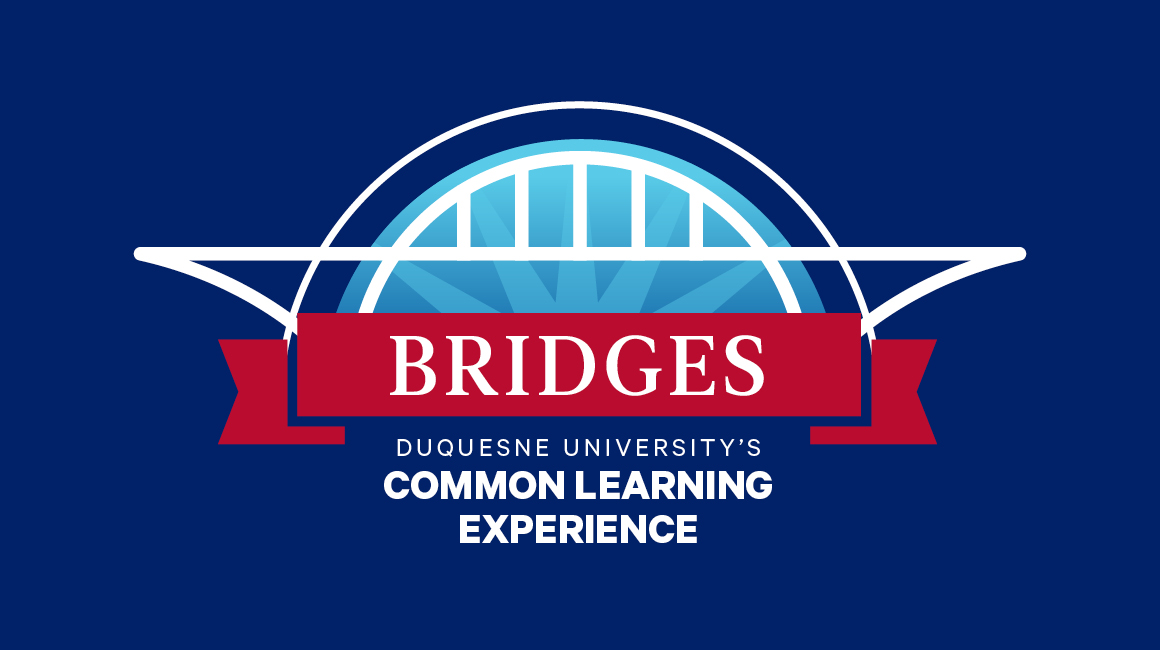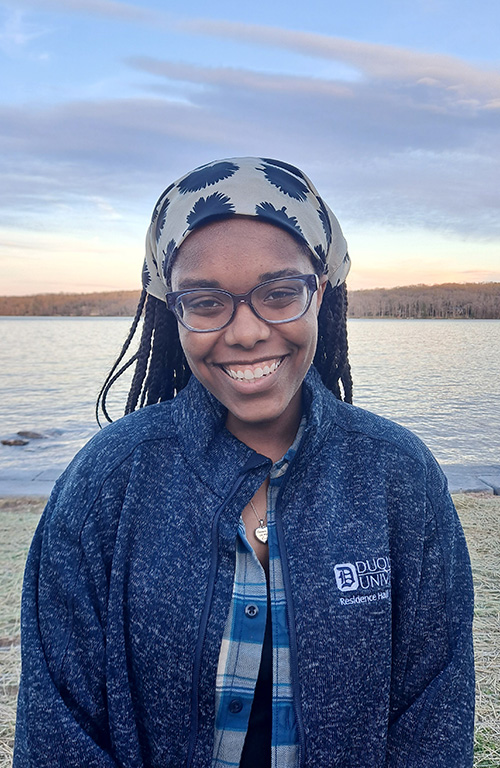Helping You Reach Your Bigger Goals
Pittsburgh is home to more than 400 bridges, and amid them all, atop the storied Bluff,
stands Duquesne University. Our location allows you to to study where possibilities extend in every direction. In fact, our
very founding was intended to help people from diverse backgrounds make a difference
as leaders and helpers in their communities, and we live that mission today.
No matter your major, our Bridges courses make up approximately one third (more than
one year!) of your college curriculum. That’s a big chunk of your undergraduate college
experience! At Duquesne University, we want your Bridges experience to prepare you
for anything – and to be time well spent.
Grounded in Duquesne's Catholic and Spiritan heritage, and leveraging our historic expertise in the liberal arts and sciences, as well as Duquesne's other academic strengths, our Bridges Common Learning Experience will prepare you to be informed, equipped, inspired and engaged. Through our Bridges Curriculum, you will build knowledge and skills to become a life-long, agile learner who succeeds professionally, acts ethically and contributes to the common good.
Thinking about possible majors?
If you’re considering possible majors and weighing what to choose, we’ve got just the program for you. Our Bridges Common Learning Experience, our commitment to your experience and our distinctive setting are ideal for helping you discover options and your personal direction.
Why is Bridges Better?
It's flexible.
We know that general education courses at most universities are organized around required courses in specific subjects, but our Bridges experience is focused on you and the knowledge and skills in demand by employers.

Our Bridges curriculum prepares you for what's next and ensures that you'll never have to narrow your ambitions. The curriculum is designed to overlap with every major at Duquesne so you can maximize progress toward your degree while having the opportunity to discover new interests or pursue additional goals.
You can choose courses that interest you. The curriculum is designed to intersect with your major and to give you room to pursue courses and learning opportunities that excite you.
While other institutions require a pre-determined set of survey courses, we take a choose-your-own-adventure approach. Know exactly where you want to go? We have a map for that. Ready to explore and discover new interests and talents? We have a map for that, too.
It's relevant.
Bridges was designed with career-readiness in mind. We used data from employers and hiring managers to identify and embed skills they prioritize. Bridges courses prepare you to adapt and evolve in a dynamic professional landscape. They connect the specialized work you do in you major to relevant insights from other fields and opportunities for experiential learning, giving you knowledge you can leverage for success. Bridges will inform, equip, inspire and engage you.
It's transfer friendly.
We want to make friends with you and your college credits. Exam credits like AP, College in High School courses, transfer credits from other institutions: bring them with you! Bridges makes it easy to transfer and apply college credit to accelerate your progress to your degree.
It's distinctive.
Animated by our Catholic and Spiritan heritage, Duquesne is a distinctive place to learn. Since our founding we've offered education as a catalyst for building better futures with our students and our communities. Bridges introduces students to our heritage through courses that explore the riches of the Catholic intellectual tradition, develop skills for ethical reasoning, inspire a love of learning by asking essential questions, and get you engaged in communities, local and global.
Benefits of Bridges
Become an agile learner and integrative thinker. Develop the ability to learn across
contexts and integrate information from diverse fields, disciplines and perspectives.
Learn to evaluate information, think critically, integrate and transfer knowledge,
persevere and adapt, and demonstrate curiosity. Become a skilled professional and versatile leader. Engage deeply with your peers
and community members to develop unique solutions to problems and concerns. Learn
to communicate effectively and collaborate with others. Recognize, define and creatively
solve problems, using appropriate methods of research, technological tools and soft
skills that are essential to professional and civic efficacy. Cultivate a life of purpose and creativity. Become inspired to contribute to the human
search for truth and make original contributions to your profession and community.
Grapple with essential questions and grow in wisdom. Stretch yourself beyond your
comfort zone. Generate ideas and motivate others by your example. Formed within Duquesne's
Catholic and Spiritan environment, Duquesne students, like our founders, extend our
mission across the globe. Become an agent for the common good. Harness your knowledge of local and global communities
in order to foster conditions that create respect for human dignity and social justice.
Learn how to be a culturally competent citizen who appreciates and fosters diversity.
Understand local and global systems. Exercise ethical judgment and navigate moral
diversity with confidence. As a professional and as a citizen, learn how to build
equitable and inclusive communities. Bridges will prepare you to reason ethically, exercise good moral judgement and demonstrate
personal integrity. Our Introduction to Ethical Reasoning 105 course introduces students
to the practice of ethical reasoning, exemplifying the profound concern for moral
and spiritual values at the heart of Duquesne's mission and contributing to the personal
development of our students. Upon completion of Introduction to Ethical Reasoning, you will learn to: As part of the Bridges CLE you will reinforce, expand and apply what you learned in
an advanced course for the Bridges Ethical Reasoning and Moral Responsibility competency.
Learn about our Essential Questions (EQ) courses, a signature feature of
the Bridges experience.
At Duquesne, you will pursue Experiential Learning Opportunities (ELOs). In many majors,
an Experiential Learning Opportunity is already embedded in academic requirements
for the major. Your Student Success Coach can confirm this. Other majors offer a variety of options for Experiential Learning. These include Study
Abroad and Community-engaged courses, as well as options that are specific to individual
majors. Your Student Success Coach can confirm this, too. Experiential learning happens outside of classes as well. Whether you do an internship,
student research, or have a leadership role on campus, you can work with Duquesne
faculty and staff to have this recognized as a form of experiential learning. All
Duquesne undergraduates can propose an Individual ELO. For Individual ELOs, you and
your ELO Director provide strategies for achievement of the learning outcomes and
an assessment plan. As part of Bridges, you will undertake a Capstone experience while at Duquesne. Most
majors have Capstones embedded in them, but all students have the option to seek approval
of an Individual Capstone project. If you have a Capstone embedded in your major, an Individual Capstone will enrich
your learning and enhance your resume or graduate school applications. Other majors
provide a variety of options for students, including the opportunity to develop an
Individual Capstone project. Your Student Success Coach can confirm whether a Capstone is included in requirements
you already meet through your major, or whether your major provides a range of opportunities
for completing a Capstone.
Our Student Success Coaches will work with you to navigate a successful
campus life.
Featured content
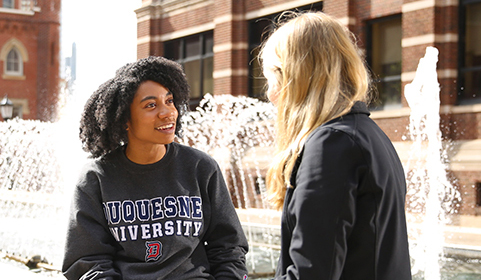
Be Informed.
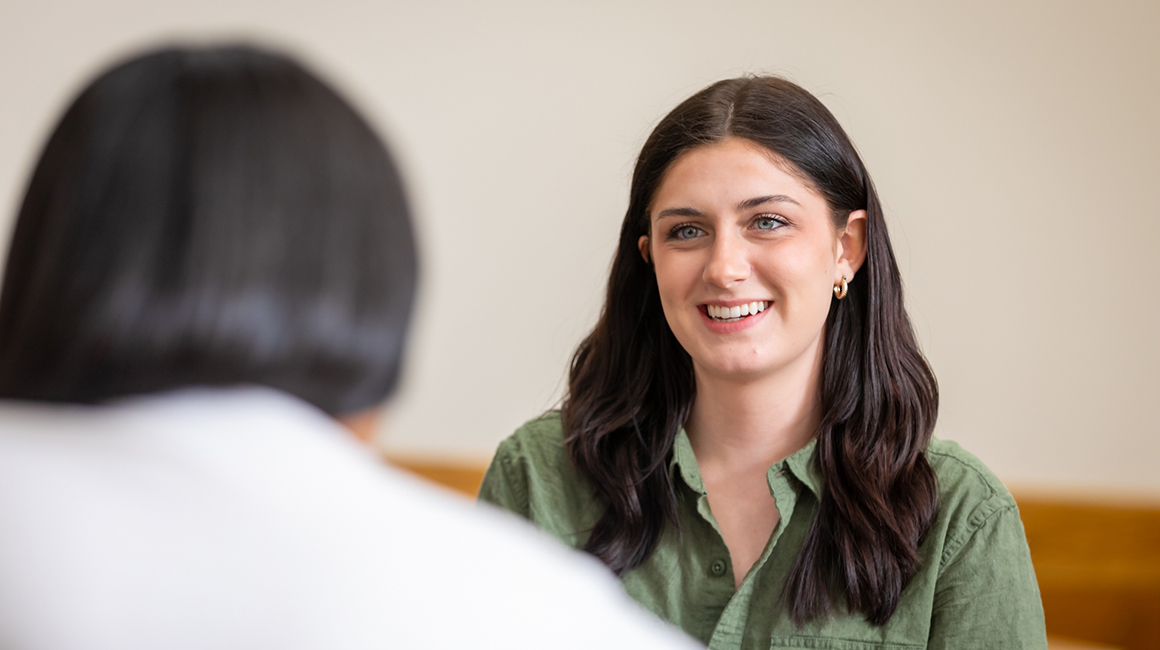
Be Equipped.
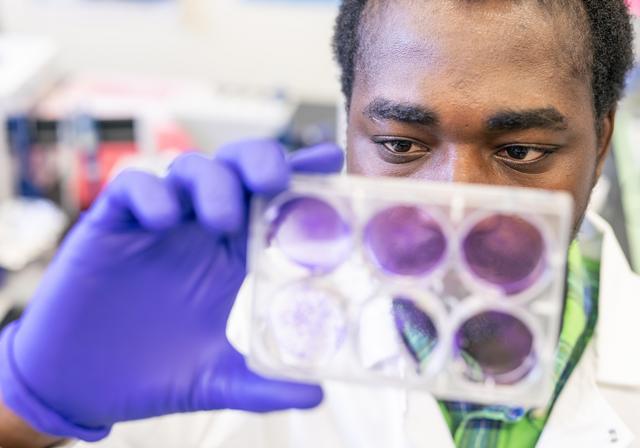
Be Inspired.
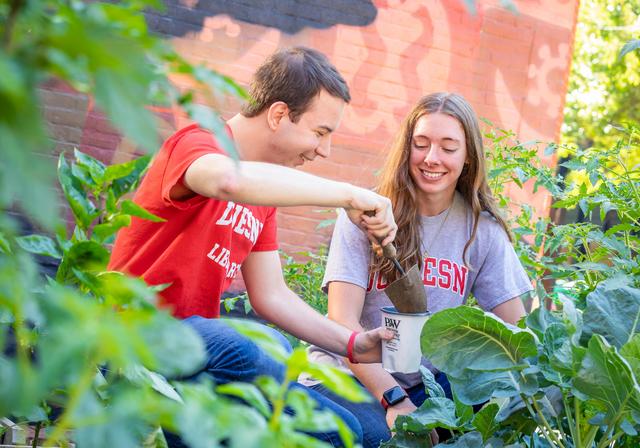
Be Engaged.
BRDG 105 Introduction to Ethical Reasoning
A central feature across all sections of the course is a common framework for ethical
reasoning which provides students a shared vocabulary, a common foundation for future
ethics education at Duquesne and a digestible and portable tool to use in their professional,
personal and civic lives.Learning Outcomes
Questions for Ethical Reasoning

What's Your EQ?
Experiential Learning Opportunities
Capstone Experience
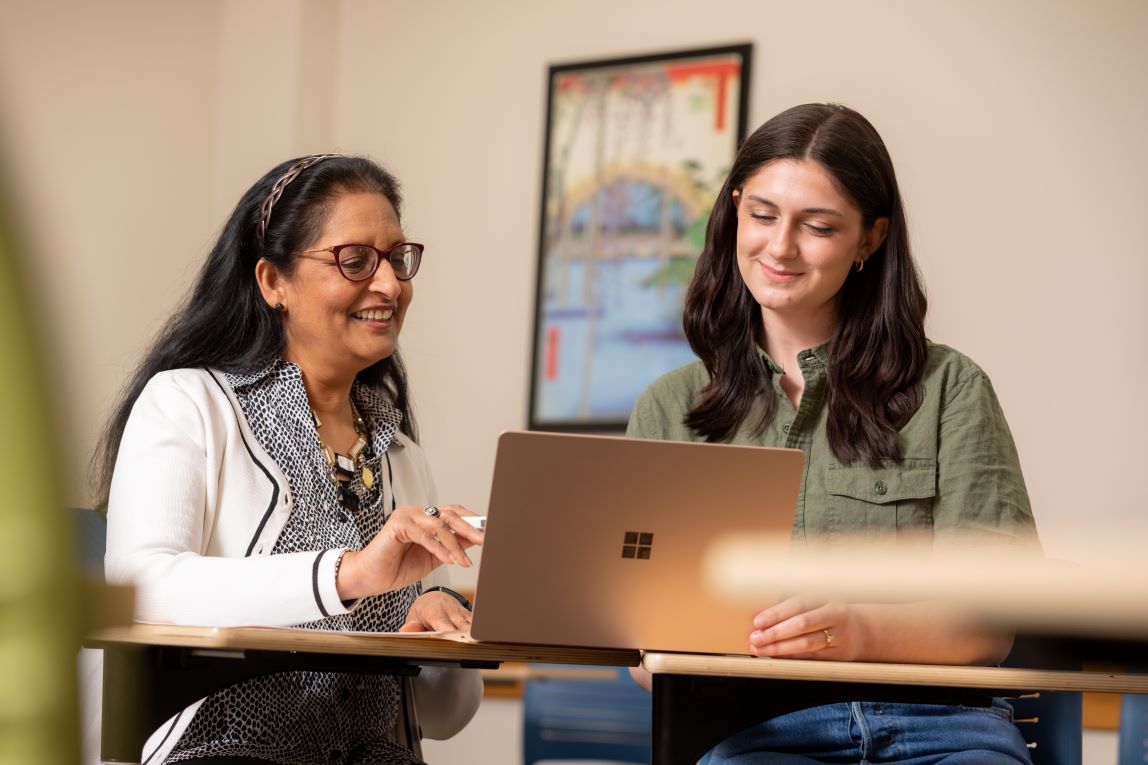
Learning Together


